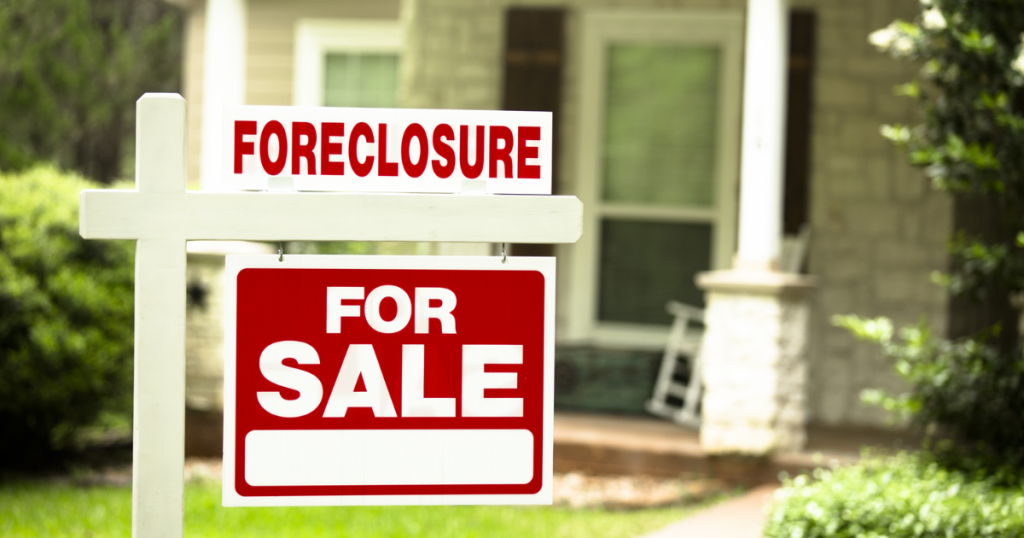Foreclosures:
A Growing Trend?

The recent rise in foreclosures has alarmed economists, policymakers, and families alike. The complex interplay of personal financial decisions, economic factors, and societal trends makes foreclosure a topic worthy of close examination. Understanding its causes, effects, prevention strategies, and how to cope with its consequences is vital for individuals, communities, and society at large.
Defining Foreclosure
and its Significance
Defining Foreclosure
Foreclosure is a legal process that ensues when a homeowner is unable to meet mortgage payments, leading to the lender taking possession of the property. This process can be traumatic and financially ruinous for homeowners and can have broader economic consequences.
Types of Foreclosure
Foreclosure processes vary by jurisdiction and can be judicial or non-judicial. Judicial foreclosures involve court proceedings, while non-judicial foreclosures allow the lender to sell the property without court intervention.
The Timeline of Foreclosure
The foreclosure process is typically lengthy and occurs in stages: missed payments, public notice, pre-foreclosure, auction, and post-foreclosure. Each stage offers opportunities for intervention but becomes increasingly difficult to reverse.
Its Significance
Foreclosure’s significance extends beyond individual loss. It impacts neighborhoods, cities, and the broader economy.
Effects on Neighborhoods
Foreclosures often lead to vacant properties, driving down neighborhood property values and often leading to increased crime and social disintegration.
Economic Impact
High foreclosure rates can destabilize housing markets and contribute to broader economic downturns, as seen during the 2008 financial crisis.
Introducing CreditGUARD: Your Partner in Financial Well-being
CreditGUARD is a reputable nonprofit organization focused on empowering individuals through financial literacy, credit counseling, debt management, and foreclosure prevention.
Mission and Vision
CreditGUARD’s mission is to educate and assist individuals in achieving financial stability, with a vision to create a society where financial wellness is accessible to all.
Services Offered
CreditGUARD offers personalized financial counseling, education, and tools to help individuals navigate complex financial challenges, including preventing foreclosure.
The Foreclosure Landscape
Exploring the Rise in Foreclosures: Recent Data and Trends
Foreclosures have become increasingly common, affected by multiple factors such as economic downturns, predatory lending practices, and personal financial mismanagement.
Economic Factors
Economic recessions, job losses, and stagnant wages can make mortgage payments unmanageable for many homeowners, contributing to the rise in foreclosures.
Lending Practices
Subprime lending and adjustable-rate mortgages have led to higher foreclosure rates, particularly among those who may not fully understand the risks involved.
Personal Factors
Unexpected personal hardships like medical emergencies, divorce, or job loss can suddenly render mortgage payments unaffordable.
Understanding the Impact of Foreclosure on Individuals and Communities
Foreclosure’s impact goes beyond financial loss and can cause profound emotional distress and community deterioration.
Individual Impacts
The loss of a home can disrupt family stability, damage credit scores, and lead to long-lasting financial difficulties.
Community Impacts
High foreclosure rates can lead to decreased property values, increased crime, reduced community cohesion, and challenges in local governance due to reduced tax revenues.
Recognizing Early Warning Signs
Recognizing the early warning signs of foreclosure can enable timely interventions, preventing further escalation.
Financial Struggles
Consistent late payments, maxed-out credit cards, and sudden financial changes can all be warning signs.
Emotional Signs
Stress, anxiety, and depression around financial matters may also be an early indicator of impending foreclosure risk.
Key Indicators of Financial Struggles
Financial struggles often precede foreclosure. Recognizing these indicators early can prevent escalation:
- Chronic Late Payments: Regularly falling behind on payments is a red flag.
- Dependence on Credit Cards: Using credit cards to cover daily expenses may indicate financial stress.
- Job Loss or Reduced Income: A sudden reduction in income can create a direct path to potential foreclosure.
- Unmanageable Debt: Escalating debt levels may be a precursor to foreclosure if not addressed.
Taking Proactive Steps to Avoid Foreclosure
Acting early to address potential foreclosure is key to finding solutions.
Contacting the Lender
Open communication with the lender can lead to modifications, refinancing, or other solutions.
Cutting Unnecessary Expenses
Evaluating and reducing non-essential expenses can free up resources for mortgage payments.
Seeking Professional Help
Organizations like CreditGUARD offer professional assistance in budgeting, debt management, and avoiding foreclosure.

How CreditGUARD’s Foreclosure Prevention Services Can Help
CreditGUARD’s personalized approach focuses on understanding individual needs, working collaboratively to develop realistic plans to prevent foreclosure.
Financial Counseling
Experienced counselors help individuals assess their financial situation, establish a budget, and create a personalized action plan.
Negotiation with Lenders
CreditGUARD can act as an intermediary with lenders, negotiating modified terms that may prevent foreclosure.
Education and Tools
CreditGUARD provides educational materials, workshops, and online tools to help individuals understand and manage their financial lives.
Preventing Foreclosure: Strategies and Options
Navigating Communication with Lenders and Servicers
Communication is key. Transparent conversations with lenders about financial hardships and possible solutions can lead to positive outcomes.
Understanding Your Mortgage Agreement
Knowing the terms of your mortgage can facilitate meaningful discussions with lenders.
Keeping Records
Documenting all communication with lenders can protect your interests and ensure a clear understanding of agreements.
Government Programs and Assistance
Numerous government programs exist to aid struggling homeowners.
Federal Programs
Programs like the Home Affordable Modification Program (HAMP) offer assistance through refinancing or loan modifications.
State and Local Programs
State and local governments often provide additional assistance tailored to the specific needs of their communities.
Exploring Alternatives to Foreclosure
Foreclosure alternatives can mitigate the impact on credit and financial well-being.
Short Sales
A short sale allows the homeowner to sell the property for less than the mortgage balance, potentially with the lender’s approval.
Deed in Lieu of Foreclosure
Transferring the property’s deed to the lender can avoid the foreclosure process, sometimes with fewer credit implications.
Leveraging CreditGUARD’s Expertise in Foreclosure Prevention
CreditGUARD offers specialized, tailored services to assist homeowners in understanding their options, making informed decisions, and effectively communicating with lenders.
Personalized Plans
CreditGUARD works individually with clients to understand their unique situation and create customized strategies to prevent foreclosure.
Expert Guidance
Their experts can navigate complex legal and financial terrains, guiding homeowners to make informed decisions.
Recapitulation of Foreclosure Trends and its Implications
Foreclosures have wide-ranging implications for individuals, communities, and economies. Understanding the underlying causes, recognizing early signs, and employing effective prevention strategies are essential in reversing this growing trend.
The Crucial Role of Proactive Financial Planning
Proactive financial planning, personalized counseling, and early intervention are vital in preventing foreclosure. Utilizing resources like those provided by CreditGUARD can empower individuals to manage financial challenges effectively.
Empowering Your Journey to Financial Freedom with CreditGUARD
CreditGUARD stands as a steadfast partner in the journey towards financial freedom, offering comprehensive support from foreclosure prevention to rebuilding after foreclosure. With a commitment to education, personalized support, and community building, CreditGUARD helps pave the way to a secure and financially stable future.
Call Credit Guard
Be Debt Free. Faster.
Contact One of Our Agents!
By providing your information, you consent and request to be contacted by CreditGuard and/or our member(s) to your phone, cell phone, email, text/SMS, and through the use of pre-recorded messages and automated dialing technology at the number(s) listed above even if your number provided on the form above is on a State, National or Corporate Do Not Call List. You are not required to purchase any goods and/or services. Standard carrier and messaging rates will apply.
Client Testimonials
"I am so grateful for my experience with Credit Guard of America. I frequently had to call with questions and concerns and they were always so helpful and kind. I had to speak with Eric a lot, I’m assuming he’s a part of management, and it was always a pleasure. They made it easy to pay off accounts and do extra payments. All 5 of my credit accounts are now paid and I couldn’t have done it without this program. I was happy to recommend them to one of my closest friends! "